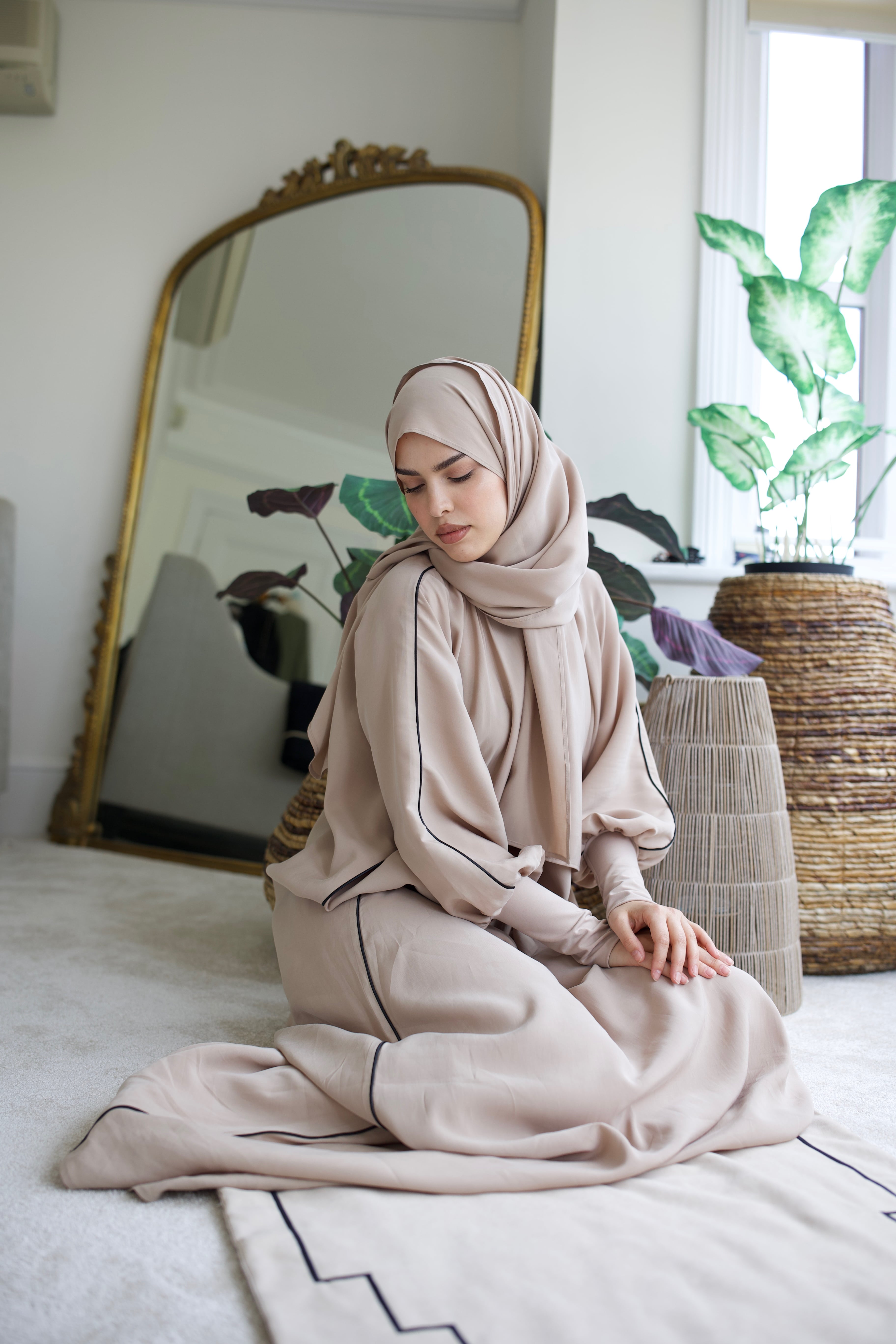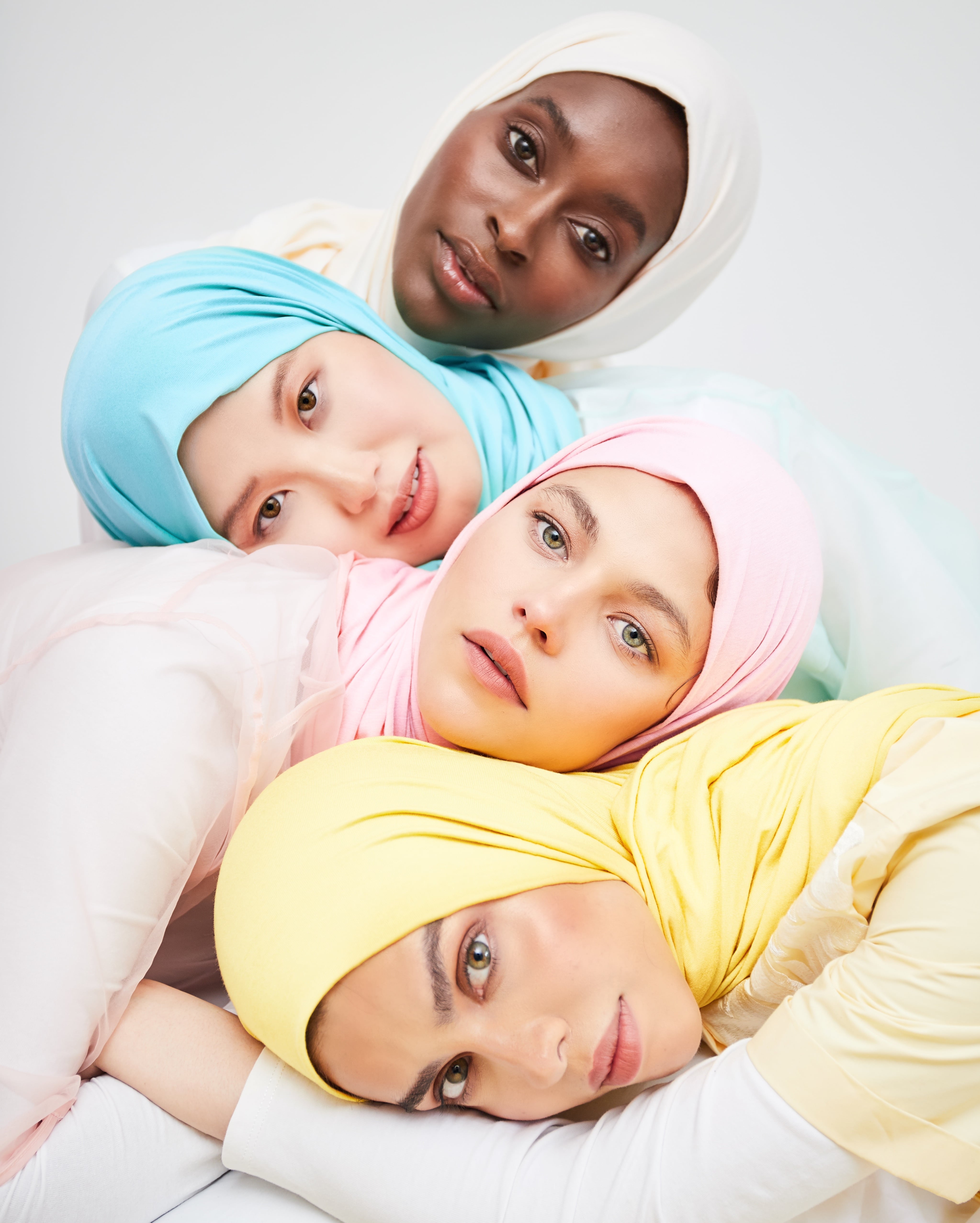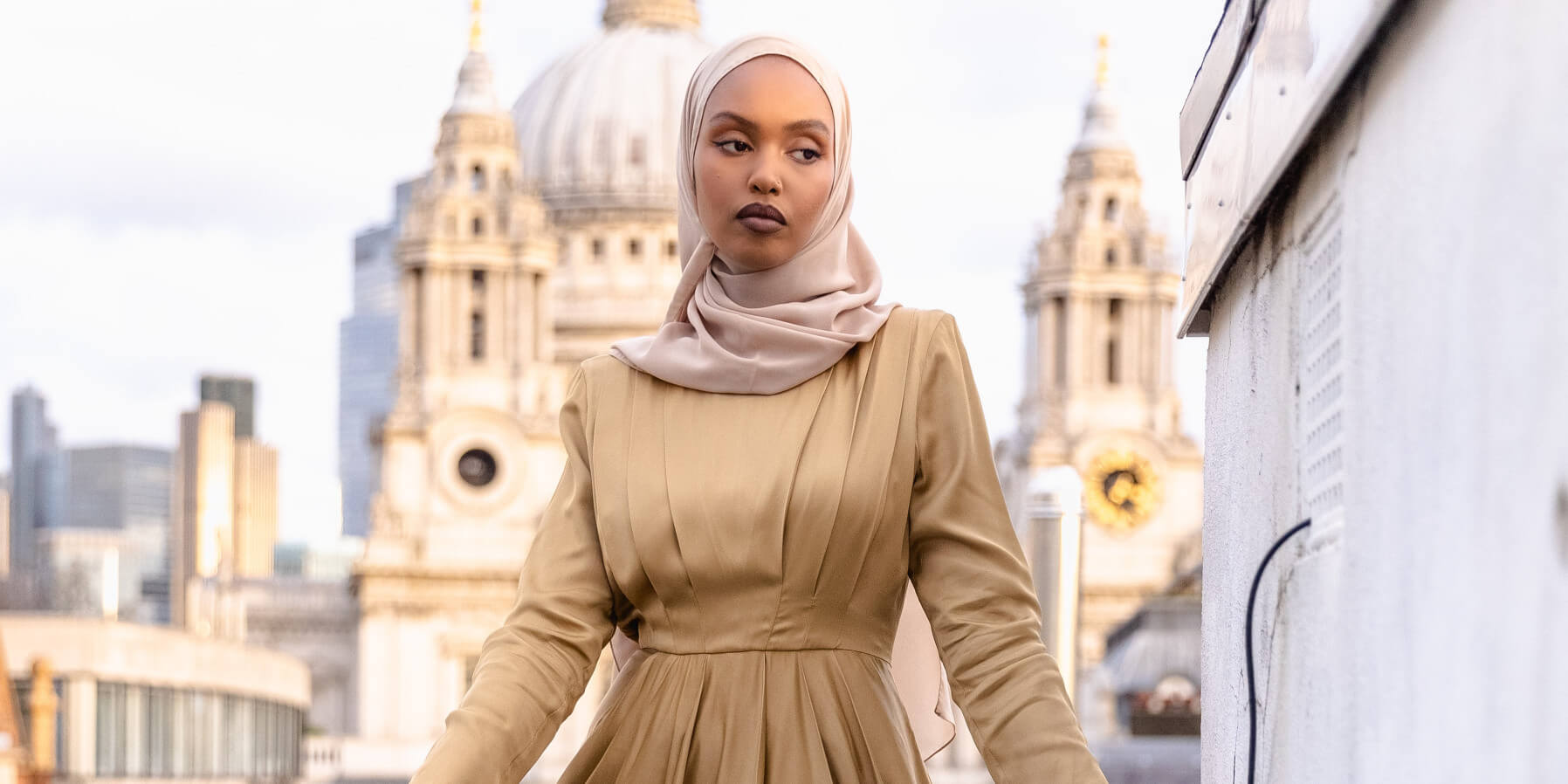Nea Wear releases Ramadan prayer collection
Sustainability is at the core of this UK modest fashion brand.
Spanish-born fashion model Ainara Adnan launched Nea Wear at the beginning of 2020 with a range of hijabs using deadstock fabrics and the bootstrapped business deriving its name from the Arabic word niyyah.
Niyyah describes the Islamic concept: the intention in one's heart to do an act for the sake of Allah.
However, Adnan’s sustainable intentions focus on more than merely avoiding waste and unused fabric going into landfills. Implementing her vision also includes selecting environmentally friendly textiles and providing clients with comfortable experiences.
A successful mix of these aspects is the recently launched Sundus prayer collection that has been in the making for a year.
“I realised many women don’t have clothes to pray at work or when they go on holiday. I wanted to make something functional, for everyone to pray anywhere,” said Adnan, a millennial who converted to Islam in her early 20s, to Salaam Gateway.

(Courtesy: Nea Wear)
Available in cream, olive and black and coming with a prayer mat and matching tote bag with embroidered logo, the one-piece Sundus prayer gown features an elegant contrast piping on both sides and an attached hijab for extra comfort.
The functional design includes pockets and an invisible zipper at the front. The fully biodegradable fabric used offers a cooling effect and provides antibacterial and moisture repellent properties, making it easy to dry quickly after wudu.
The Sundus collection is made in Turkey, using wholly TENCEL™ Lyocell fibres. Tencel is a type of rayon that, according to scientist Johnathan Y. Chen, was developed as researchers sought to manufacture rayon in a less harmful way than the viscose method.
These fibres are extracted from sustainably grown wood using a closed-loop system to recover and reuse the solvents, thus minimising the environmental impact of production.
“We also focus on fabric manufacturers that use nontoxic, natural dyes,” Adnan said about her choice of suppliers, adding that dyeing is one of the fashion industry’s largest water pollutant processes.
(Courtesy: Nea Wear)
According to Dinar Standard’s State of the Global Islamic Economy Report 2022, consumers are taking a greater interest in where their clothing originate and require more accountability from manufacturers.
The consulting firm sees this as an opportunity for financiers to invest in businesses actively implementing sustainable and ethical practices. Investors can also encourage sustainable practices by including sustainability goals in their conditions and have a first-mover advantage since sustainable materials are not yet common in the modest fashion industry.
The report highlighted the industry’s growth potential with Muslim fashion spending increasing 5.7% in 2021 to $295 billion and expected to increase 6% in the current year to $313 billion. An anticipated 6.1% four-year compound annual growth rate will value the industry at $375 billion by 2025.
Adnan said the business was “going well”, having created a stable revenue base from which to allow for growth. However, the entrepreneur also pinpointed it has been an arduous journey.
“As much as it’s true that it was a good time for online businesses, the competition and market’s saturation became absolutely unbearable,” she said, referring to the pandemic.
Nea Wear is in the onboarding process with three to five retailers to grow reach and revenue.
“Obviously, I’m focusing on sustainable retailers,” Adnan said, naming Plain Tiger, a marketplace that offers conscious luxury, as one.
Besides selling through the brand’s website, Adnan also dreams of having a small shop in future. However, she remains focused and sustainability-minded.
“I don’t want to make a lot, but I want to make it well,” she concluded.
© SalaamGateway.com 2022. All Rights Reserved

